Zihuiwen Ye
Improving Reward Models with Synthetic Critiques
May 31, 2024

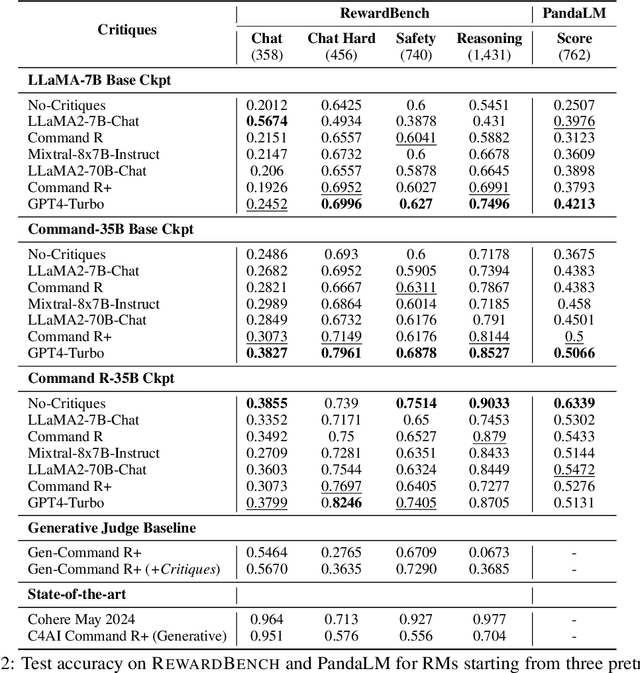
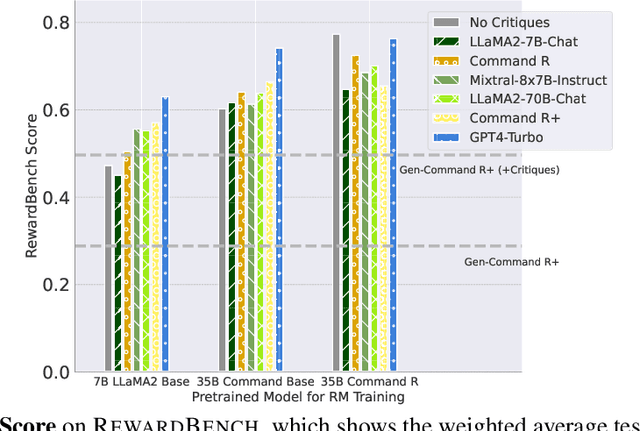
Abstract:Reward models (RM) play a critical role in aligning language models through the process of reinforcement learning from human feedback. RMs are trained to predict a score reflecting human preference, which requires significant time and cost for human annotation. Additionally, RMs tend to quickly overfit on superficial features in the training set, hindering their generalization performance on unseen distributions. We propose a novel approach using synthetic natural language critiques generated by large language models to provide additional feedback, evaluating aspects such as instruction following, correctness, and style. This offers richer signals and more robust features for RMs to assess and score on. We demonstrate that high-quality critiques improve the performance and data efficiency of RMs initialized from different pretrained models. Conversely, we also show that low-quality critiques negatively impact performance. Furthermore, incorporating critiques enhances the interpretability and robustness of RM training.
EXPLAINABOARD: An Explainable Leaderboard for NLP
Apr 13, 2021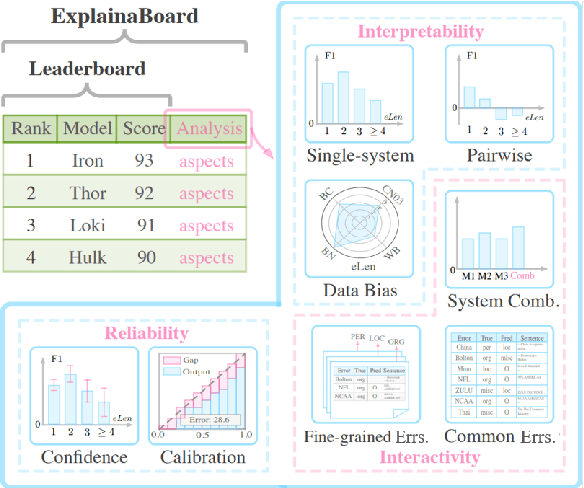
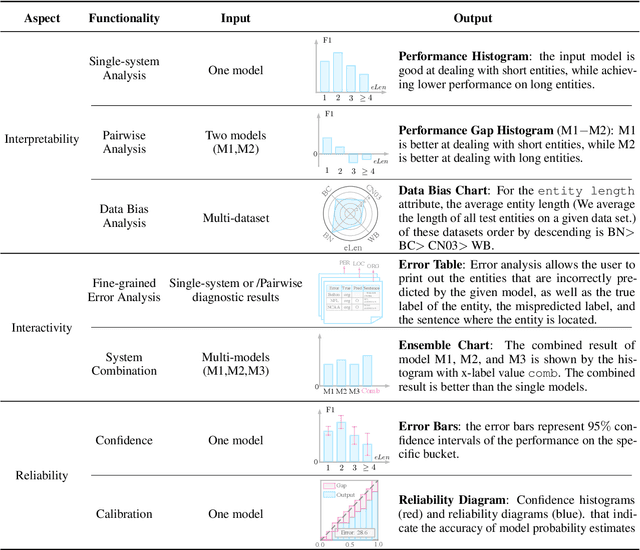
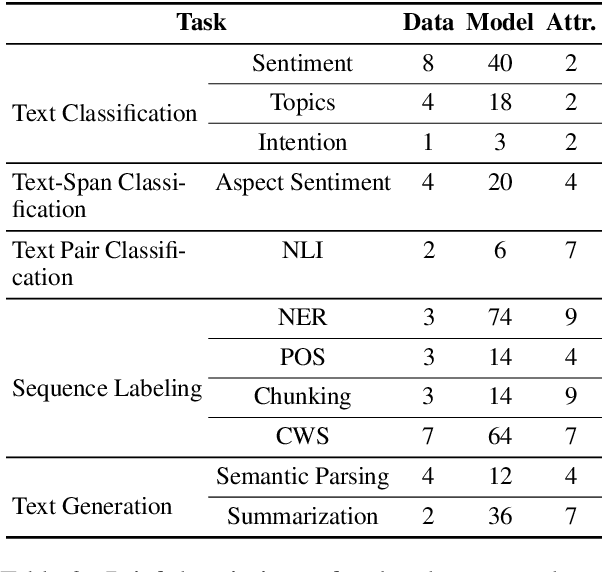
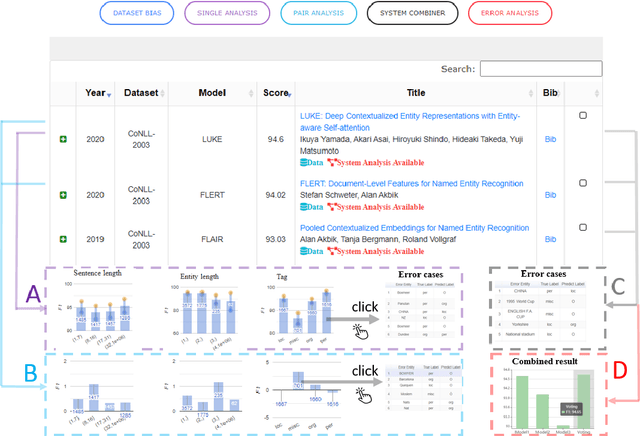
Abstract:With the rapid development of NLP research, leaderboards have emerged as one tool to track the performance of various systems on various NLP tasks. They are effective in this goal to some extent, but generally present a rather simplistic one-dimensional view of the submitted systems, communicated only through holistic accuracy numbers. In this paper, we present a new conceptualization and implementation of NLP evaluation: the ExplainaBoard, which in addition to inheriting the functionality of the standard leaderboard, also allows researchers to (i) diagnose strengths and weaknesses of a single system (e.g. what is the best-performing system bad at?) (ii) interpret relationships between multiple systems. (e.g. where does system A outperform system B? What if we combine systems A, B, C?) and (iii) examine prediction results closely (e.g. what are common errors made by multiple systems or and in what contexts do particular errors occur?). ExplainaBoard has been deployed at \url{http://explainaboard.nlpedia.ai/}, and we have additionally released our interpretable evaluation code at \url{https://github.com/neulab/ExplainaBoard} and output files from more than 300 systems, 40 datasets, and 9 tasks to motivate the "output-driven" research in the future.
Towards More Fine-grained and Reliable NLP Performance Prediction
Feb 10, 2021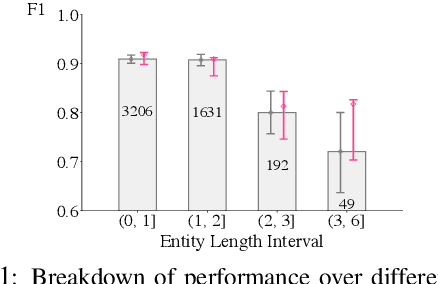
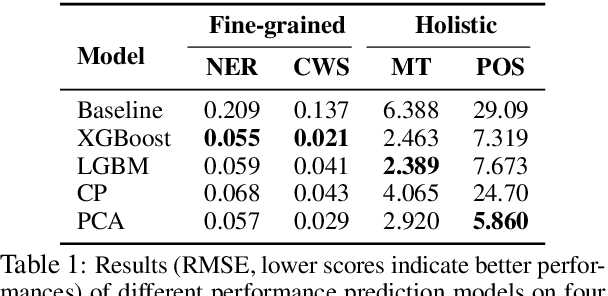
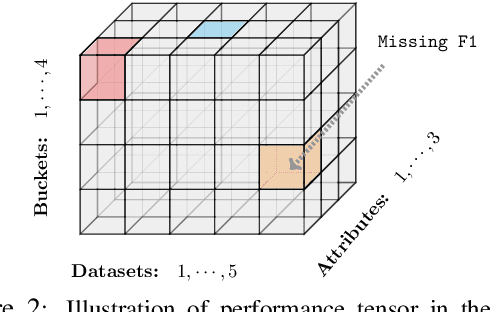
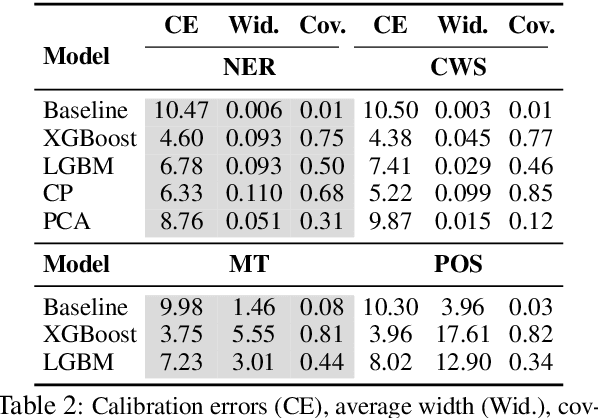
Abstract:Performance prediction, the task of estimating a system's performance without performing experiments, allows us to reduce the experimental burden caused by the combinatorial explosion of different datasets, languages, tasks, and models. In this paper, we make two contributions to improving performance prediction for NLP tasks. First, we examine performance predictors not only for holistic measures of accuracy like F1 or BLEU but also fine-grained performance measures such as accuracy over individual classes of examples. Second, we propose methods to understand the reliability of a performance prediction model from two angles: confidence intervals and calibration. We perform an analysis of four types of NLP tasks, and both demonstrate the feasibility of fine-grained performance prediction and the necessity to perform reliability analysis for performance prediction methods in the future. We make our code publicly available: \url{https://github.com/neulab/Reliable-NLPPP}
 Add to Chrome
Add to Chrome Add to Firefox
Add to Firefox Add to Edge
Add to Edge